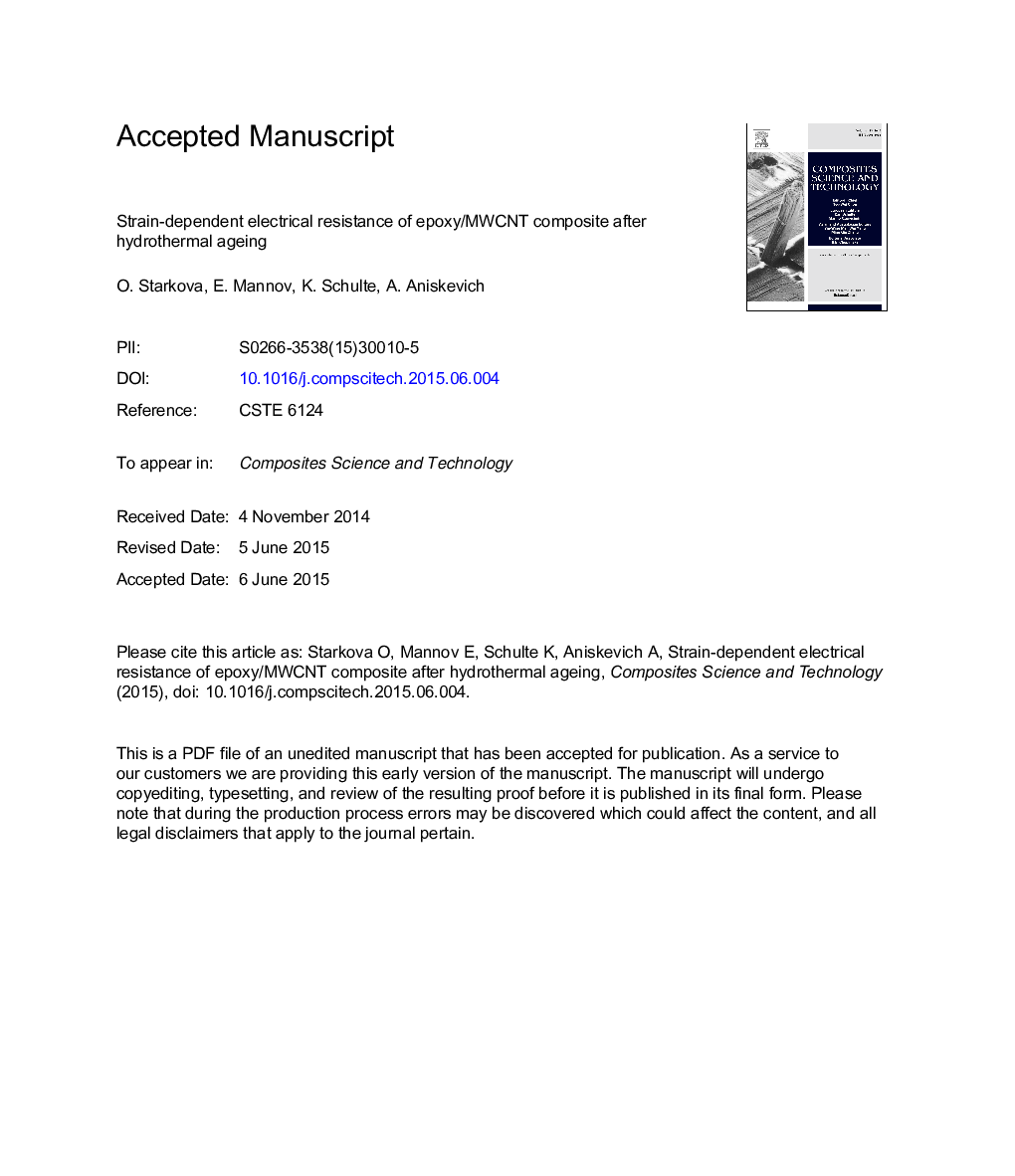| Article ID | Journal | Published Year | Pages | File Type |
|---|---|---|---|---|
| 7215373 | Composites Science and Technology | 2015 | 26 Pages |
Abstract
The electrical resistance of epoxy/multi-wall carbon nanotube (MWCNT) composites was studied under the effect of hygro- and hydrothermal aging. Tensile tests were conducted and the responses in the electrical resistance were measured during the tests for samples with different prehistory of environmental exposure. The overall pattern of the electrical resistance change versus strain for the samples tested consists of linear and nonlinear regions with a broad peak that precedes the ultimate strength of the sample and occurs at the onset of evident plastic deformation in the stress-strain curve. The composite with lower content of MWCNTs exhibits a more pronounced nonlinear behavior and the rate of resistance increase with strain is significantly higher that is attributed to a dominant role of the tunneling-type resistance. Moisture and water uptake of the samples resulted to an increase of their electrical resistance. This fact is explained by the increased tunneling resistance due to epoxy swelling and hydrothermally-induced structural variations of the MWCNT conductive network. Samples conditioned under different hygro- and hydrothermal conditions show different strain-dependent response of the electrical resistance, which is not directly related to the level of moisture/water uptake. Under low strain values, strain sensing functionality of epoxy/MWCNT composites is only slightly affected by aging conditions.
Related Topics
Physical Sciences and Engineering
Engineering
Engineering (General)
Authors
O. Starkova, E. Mannov, K. Schulte, A. Aniskevich,
